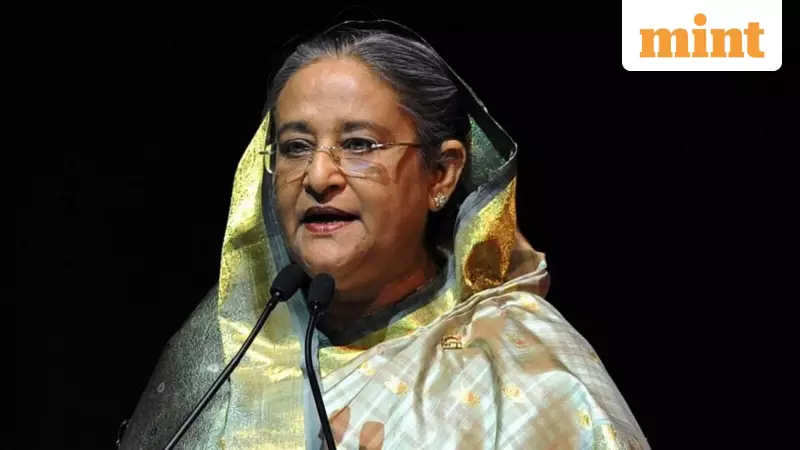
In a landmark verdict that has sent shockwaves across South Asia, Bangladesh's ousted Prime Minister Sheikh Hasina has been sentenced to death by the International Crimes Tribunal in Bangladesh for crimes against humanity. The verdict comes more than a year after she fled to India following violent student protests that rocked the nation.
The Fall of a Political Dynasty
Sheikh Hasina, who ruled Bangladesh for fifteen consecutive years, saw her government collapse during the massive student protests of July-August 2024. The protests initially began against government job quotas that reserved one-third of civil service posts for descendants of Mukti Yodhas who fought in the 1971 war of independence.
The situation turned deadly when the government allegedly ordered a crackdown on demonstrators who were demanding Hasina's resignation. Hundreds of protesters were killed and thousands more injured during the violent clashes that marked the beginning of the end for Hasina's political career.
Timeline of Key Events
The dramatic sequence of events began with the student protests that quickly escalated into a nationwide movement. On August 5, 2024, Sheikh Hasina was forced to resign as prime minister and fled to India as protesters stormed her official residence, celebrating what they considered a historic victory.
Three days later, on August 8, 2024, students elected Mohammad Yunus to head a caretaker government until proper elections could be conducted. The interim government quickly moved to address the violence that had occurred during the protests.
By August 14, 2024, the Yunus-led administration announced it would put on trial those involved in the killings during the student movement through the International Crimes Tribunal Bangladesh (ICT-BD). The tribunal was reconstituted in October 2024 to handle these cases.
The legal process gained momentum when arrest warrants were issued on October 17, 2024 against the ousted prime minister and 45 others, including top Awami League leaders, in connection with alleged crimes against humanity.
The Legal Proceedings Unfold
The United Nations added international pressure with a fact-finding report in February 2025 that confirmed approximately 1,400 people were killed during the protests. This report became crucial evidence in the subsequent trial.
The trial officially opened on June 1, 2025, with Sheikh Hasina facing charges related to coordinated and systematic violence against unarmed civilians. The court appointed former Supreme Court judge AY Moshiuzzaman as amicus curiae for Hasina's defense on June 19, 2025.
In a preliminary ruling, Sheikh Hasina was sentenced in absentia to six months in prison for contempt of court on July 2, 2025. The formal indictment followed on July 10, 2025, when Hasina, former home minister Asaduzzaman Khan Kamal, and former police chief Chowdhury Abdullah Al-Mamun were charged on five counts of crimes against humanity, including mass killings.
The main trial against Sheikh Hasina and her two aides commenced on August 3, 2025, concluding its hearings on October 23, 2025. The tribunal fixed November 17 as the verdict date, which culminated in today's historic judgment.
The Final Verdict and Its Implications
On November 17, 2025, the International Crimes Tribunal delivered its final judgment, convicting Sheikh Hasina and former home minister Kamal of crimes against humanity and sentencing them to death. Mamun, who had become a state witness, received a lighter sentence of five years imprisonment.
This verdict marks a significant moment in Bangladesh's political history, representing the first time a former prime minister has received a death sentence for crimes against humanity. The case has drawn international attention and raises important questions about political accountability in South Asia.
The sentence comes amid ongoing tensions between Bangladesh and India, with Bangladesh having previously asked India to hand over the ousted prime minister. The verdict is expected to have significant implications for regional politics and bilateral relations between the neighboring countries.






